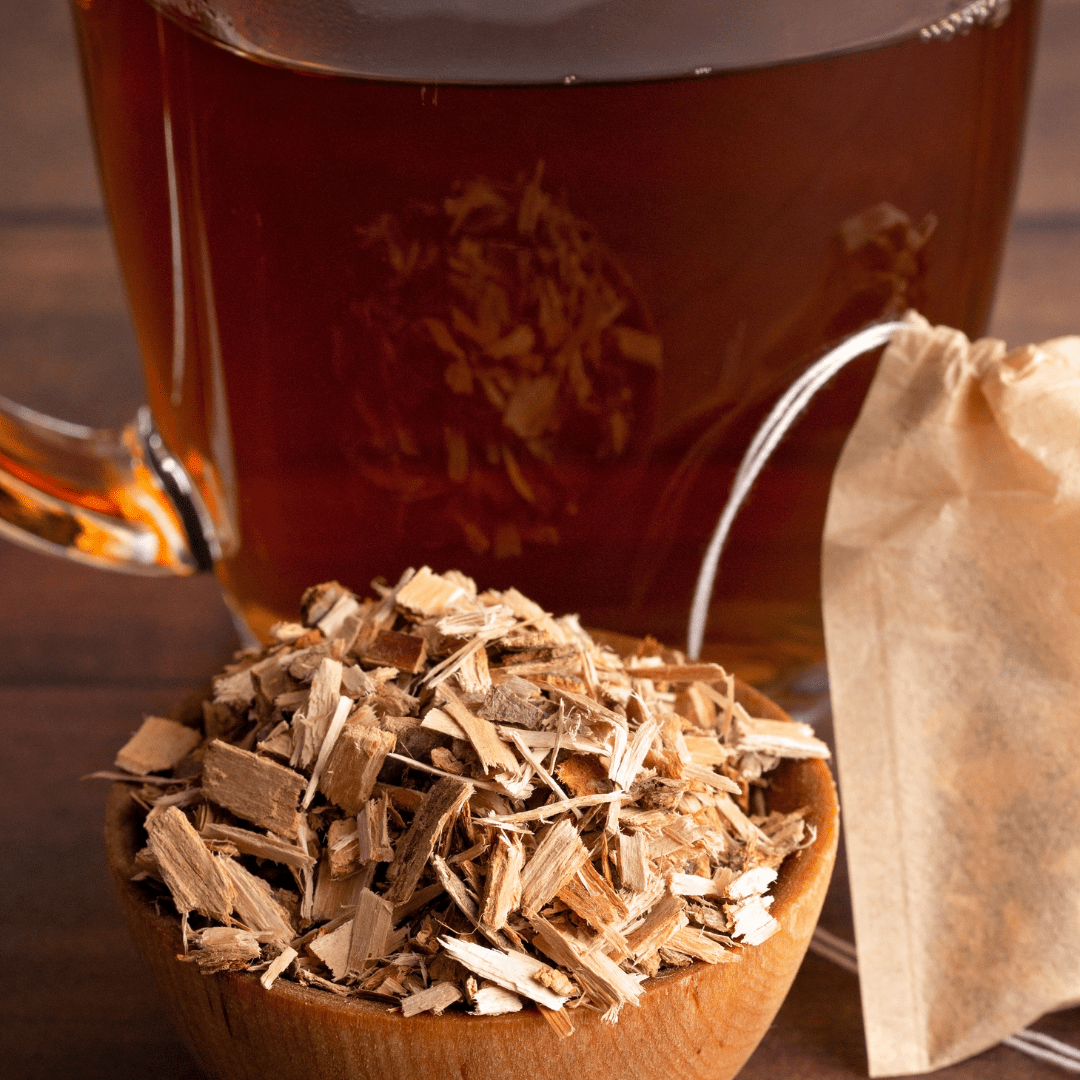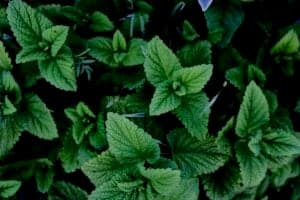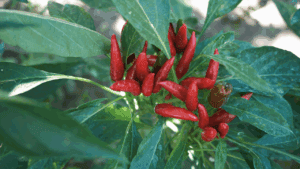Table of Contents
It’s common these days for folks to think about Willow as an alternative to aspirin. Many people know that Willow bark also contains salicylic acid, which is the main compound in aspirin. This is a great place to illustrate the difference between looking at a plant through more of a biomedical or allopathic lens versus through more of a holistic or vitalist lens. When we look at willow bark and see it as just an herbal form of salicylic acid, we’re overlooking a lot of attributes of this plant that are very important to understand in order to use it holistically.
If we think of Willow as merely an herbal form of aspirin, it can lead to confusion and potential misuse of this plant, which can potentially cause adverse side effects if you give it to the wrong person. But more often than not, what that will lead to is it not working in the way that you think it will, because Willow bark is much more complex than simple aspirin. It can set people up for disappointment if they think drinking a cup of Willow bark tea or taking a dropperful Willow bark tincture is going to take away their pain or headache as well as popping an aspirin.
But I also think that, contrary to popular belief, there are times where aspirin has its place. As herbalists practicing in this modern world, I believe it’s important to make sure we adopt more of an open mind when it comes to healing and helping people, and that means navigating people’s usage of over-the-counter and prescription drugs. Indeed, there are certain situations where an aspirin actually might be able to save a life. So be sure to read this entire article to find out what that situation looks like.
This topic was prompted by a few questions from a student: “Is Willow bark tincture a good alternative to aspirin? Aspirin is used to thin the blood for those who have clogged arteries in emergency situations. Can Willow bark be used in the same way with the same effect? Am I right in thinking that aspirin numbs pain, whereas Willow bark will help with pain by drawing out the cause of the pain? Can you take Willow bark alongside aspirin to help support the body and the liver? What is a cold-type headache as mentioned in one of the videos in the vitalist herbal practitioner program?”
Willow Bark as an Alternative to Aspirin
Aspirin was first synthesized from the herb Meadowsweet (Filipendula ulmaria). Willow bark and Meadowsweet contain the biochemical compound salicylic acid, which is the basis for aspirin. This is where we come up against more allopathic ways of thinking versus vitalist ways of thinking. While Willow bark indeed contains the same biochemical compound as aspirin, it is a stretch to think that Willow is simply a “natural alternative to aspirin.” Because when you take Willow bark, it works differently than taking an aspirin. Willow bark is a much more complex substance than aspirin which is a single isolated compound. While Willow bark has that single isolated compound, it is in significantly lower concentrations and alongside a whole bunch of other compounds that likely work with it in a synergistic manner. So thinking about willow bark as just a straight alternative to aspirin is not an effective way of thinking about it. It is in fact, applying an allopathic model to a holistic plant. You can, but it’s not going to give you the full picture of what Willow bark is actually doing.
In regards to whether it’s a good alternative to aspirin, it is, kind of. Paul Bergner notes that 1 oz of Willow bark contains approximately the equivalent to ½ of a baby aspirin. The amounts are going to differ slightly from Willow bark to Willow bark, but it’s a very small amount of salicylates. If you were trying to drink as much Willow bark decoction or take as much tincture to get an equivalent amount to a regular-strength aspirin, you would have to take so much of it that it could possibly just be nauseating. In short, it’d be tough to take an aspirin’s worth of Willow bark. You might end up just drunk by the time you get enough tincture in you to get that milligram equivalent of salicylates. So it’s not worth thinking about Willow bark as a one-to-one replacement with aspirin, because the concentration of the constituents is so much lower, but also there’s so much more going on with Willow bark chemically than just a straight-up aspirin.
Blood-Thinning Effect
Certainly Willow bark is said to have a bit of a blood-thinning effect. This is not quite as concentrated as aspirin. But in an emergency situation, it’s better than nothing. If someone’s in an emergency situation—say they have a deep vein thrombosis or they’re having a heart attack or something where there’s clogged or stagnant blood, some sort of blockage or a clogged artery—if you have an aspirin, give them an aspirin. In an emergency situation like that, it’s not effective to be rigid in terms of, “I don’t believe in an over-the-counter drug.” That over-the-counter drug can save a life right now, possibly. Of course, if you only have Willow bark, give them the Willow bark for sure.
But for me, to be perfectly honest, if I was in that situation—someone was having an emergency and I had a choice between the willow bark and an aspirin, and it was a life-and-death situation—I’d give them the aspirin because I know that it’s going to thin the blood more effectively than the Willow bark tincture. I know that might be shocking and offensive to people, and maybe I’ll get hate mail for it or a bunch of mean comments. But again, even though I am an herbalist, what’s more important to me is that someone gets healed, someone is effectively taken care of, and someone’s life is saved. That’s more important than what I use to help them. So if an aspirin is going to do a better job than the herb in a very acute emergency situation like that, I’m going to grab the aspirin.
Will Willow bark have the same effect? I’m not totally sure. It’s a good question. It might require such a high dose of it that it might be difficult to get that into someone.
The other thing that I would mention here with regard to a clogged artery, and this is especially true for a clogged coronary artery—i.e., someone having an acute heart attack—is that Cayenne pepper is a critical herb. It is such a powerful circulatory stimulant that it can dilate the blood vessels and help to push that blood through a blocked vessel. And it specifically does this in the coronary artery, so it’s a specific remedy that can save a life during an acute heart attack.
It’s possible that rather than Willow bark on its own, there could be some sort of formulation that happens—blood thinners, antispasmodics—to dilate the vessels and blood drivers to move the blood. You’re thinning the blood, you’re dilating the vessels, and you’re driving the blood to help remove that clog in the artery. So that could be something like possibly Willow bark. We know Gingko (Ginko biloba) thins the blood and dilates the blood vessels. We know Lobelia (Lobelia inflata) dilates blood vessels.
So thinking it through more in terms of a formula rather than just single willow bark to thin the blood might be a more effective, broad spectrum approach.
Aspirin vs. Willow Bark for Pain
One of the most common ways aspirin is used is for inflammatory type pain, particularly in the joints, injury, and headaches. Next, thinking of aspirin numbing the pain vs. willow bark drawing out the cause of the pain, it really depends. Pain can be complicated, as we can have it for a lot of different reasons. There’s pain due to muscle spasm and tension. There’s pain because of irritation and inflammation. There’s pain because of swelling. There’s pain because of a nerve being stimulated. These are all very different types of pain, with some being taken care of by a salicylate and others possibly not.
I don’t think it is accurate to say that aspirin numbs the pain while willow bark gets to the root cause. Aspirin and other NSAIDs—non-steroidal anti-inflammatory drugs—are working by literally shutting down a part of the inflammatory pathway by working through inhibiting a compound referred to as cyclooxygenase (COX-2 inhibitors). They’re inhibiting cyclooxygenase, which is stopping the inflammatory process from occurring higher up in the pathway. This is why NSAID’s like aspirin are specific for inflammatory-based pain and work for certain types of headaches and not for others. It’s why they’re used for joint pain, stiffness, soreness, any inflammatory manner of pain, and why they work very nicely there.
Willow bark will work similarly to an extent, but if we think of the smaller amount of salicylic acid that you’re getting in Willow bark, it’s important to consider how Willow bark is relieving pain. Is it through the biochemical property of salicylic acid, even though it’s being delivered to the body in a significantly lower amount than half of a baby aspirin (and that’s if you have the guts to take a whole ounce at once!)? Or is Willow bark relieving pain because it’s cooling down constitutional heat and irritation in the tissues? Or because it’s bitter and draining fluids out from a tissue that is perhaps puffy and swollen with dampness and pressing on a nerve ending?
It’s important to remember that plants do not only work through biochemical constituents, but through their humoral or constitutional effects as well. This is considering how the plant influences the ecosystem of the tissues, which is the hallmark of a holistic understanding of the body and herbalism as a whole. In the case of Willow, we see that this is a cooling, draining, drying, bitter, and astringent plant, which is a major contributing factor to its pain-relieving effects.
It is cooling down heat, inflammation and irritation. It is draining and drying fluid accumulation and swelling. This is combination with slightly inhibiting COX-2 all contribute to Willow bark helping relieve this specific pattern of pain.

Taking Willow Bark Alongside Aspirin
Could you take willow bark alongside aspirin to support the body and the liver? Sure. I don’t see why not. I don’t have a problem if someone takes an aspirin every once in a while. It’s when people are taking aspirin every day or multiple times a day, or even multiple times a week for long periods of time—that’s when we need to dig in a little deeper to figure out what’s going on. Why are you in pain? Why are you getting these headaches? Why are you consistently taking these aspirins or any other type of non-steroidal anti-inflammatory drug? Because people shouldn’t have to rely on something like aspirin on a consistent basis. It’s not ideal and can lead to side-effects, most notably gastric ulcers.
I don’t see why taking aspirin next to willow bark could not be done, but I would say if someone is having to take it consistently, there’s some work that needs to be done to figure out why they are inflamed. Because that’s ultimately how an aspirin is helping someone feel better—it’s reducing their inflammation. So the question to ask is what’s causing the inflammation and how can we adjust their lifestyle, diet, habits and whatever it is that they’re doing that’s leading to that inflammation and then try to remove that root cause.
Cold Headaches
Temperature is a great way to differentiate headaches. A hot-type headache is one that is a sharper pain. There’s oftentimes a sensitivity to light. It’s worse with heat, and that could be hot weather, hot environment, hot, spicy food. Oftentimes the face will be really red. And the pain feels sharp.
A cold-type headache is the opposite. It’s going to be aggravated or triggered by cold weather, cold environments, really cold foods, ice cream, dairy foods, and things like that. The skin and face will usually be pale.
A hot-type headache is too much blood flow going up into the head, and a cold-type headache is not enough blood flow getting up into the head. Oftentimes a cold headache is going to be a little more dull and achy and throbbing rather than sharp, targeted, and specific. Those are some really basic differentials between a hot and a cold type headache.
Another differentiation in headaches is the difference between a tension-based headache versus a relaxation-based headache. Another way of saying this is an excess vs. deficiency headache. Here we’re looking at the tonal quality of the vasculature and, whether the blood vessels are overly constricted and the blood’s being forced through a smaller vessel, or whether the vessels are overly lax and are not getting adequate blood flow there.
Those are just a couple of ways that you can come to understand more of the differences between headache types. This is very important because different remedies that are good for headaches will have very different energetic profiles. Some are warming, some are cooling. You’ll read that Rosemary (Rosmarinus officinalis) is very helpful for headaches. Well, yes, but specifically for cold headaches. If you have a hot-type headache, Rosemary can potentially make it worse because it’s bringing more blood flow up into the brain, which can be aggravating.
So it’s important to differentiate those types of headaches and to make sure you’re administering remedies that will be best suited to the constitution of the person and the specific tissue states behind their symptom.








